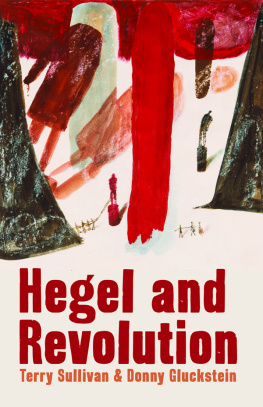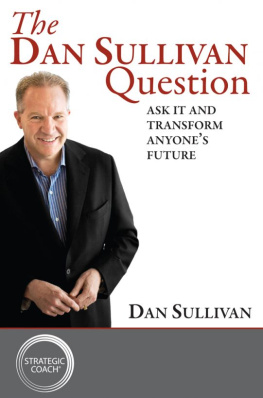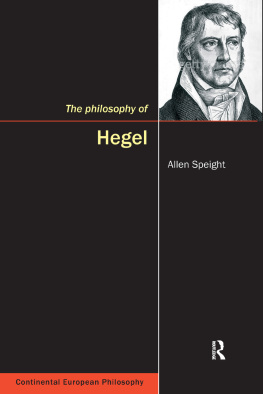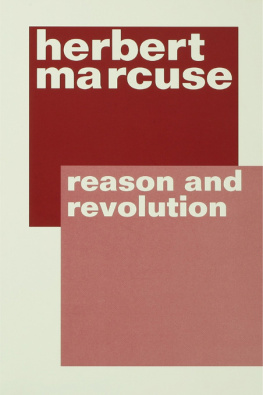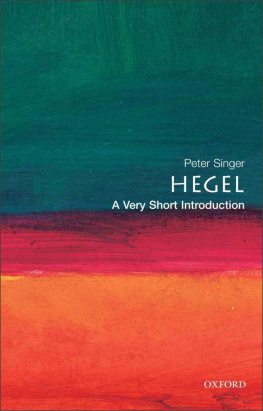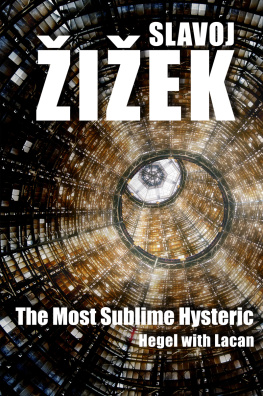Terry Sullivan - Hegel and Revolution
Here you can read online Terry Sullivan - Hegel and Revolution full text of the book (entire story) in english for free. Download pdf and epub, get meaning, cover and reviews about this ebook. publisher: Bookmarks, genre: Religion. Description of the work, (preface) as well as reviews are available. Best literature library LitArk.com created for fans of good reading and offers a wide selection of genres:
Romance novel
Science fiction
Adventure
Detective
Science
History
Home and family
Prose
Art
Politics
Computer
Non-fiction
Religion
Business
Children
Humor
Choose a favorite category and find really read worthwhile books. Enjoy immersion in the world of imagination, feel the emotions of the characters or learn something new for yourself, make an fascinating discovery.
- Book:Hegel and Revolution
- Author:
- Publisher:Bookmarks
- Genre:
- Rating:5 / 5
- Favourites:Add to favourites
- Your mark:
- 100
- 1
- 2
- 3
- 4
- 5
Hegel and Revolution: summary, description and annotation
We offer to read an annotation, description, summary or preface (depends on what the author of the book "Hegel and Revolution" wrote himself). If you haven't found the necessary information about the book — write in the comments, we will try to find it.
Hegel and Revolution — read online for free the complete book (whole text) full work
Below is the text of the book, divided by pages. System saving the place of the last page read, allows you to conveniently read the book "Hegel and Revolution" online for free, without having to search again every time where you left off. Put a bookmark, and you can go to the page where you finished reading at any time.
Font size:
Interval:
Bookmark:


Terry Sullivan
&
Donny Gluckstein
Hegel and Revolution
by Terry Sullivan and Donny Gluckstein
First published by Bookmarks in 2020
Bookmarks Publications Ltd
c/o 1 Bloomsbury Street, London WC1B 3QE
www.bookmarksbookshop.co.uk
ISBN 978-1-912926-22-0 paperback
ISBN 978-1-912926-23-7 Kindle
ISBN 978-1-912926-24-4 epub
ISBN 978-1-912926-25-1 pdf
Typeset by Bookmarks Publications
Cover design by Ben Windsor
Printed by Halstan & Co
We would like to thank Sally Campbell for welcoming the idea of a book on Hegels relevance to Marx when she was at Bookmakers and for commenting on the complete draft. Rhys Williams also read the whole book and provided many detailed comments that helped shape its structure significantly. Thanks to Ken Olende for a very useful discussion on Eurocentrism and for sharing with us an article of his on the subject that was yet to be published. Mark Thomas provided useful comments about the need to make certain sections more accessible. A special mention must go to Richard Donnelly who has been unstintingly enthusiastic throughout the whole project and whose comments and suggestions proved most useful. Finally, thanks to Colm Bryce at Bookmarks for help taking the book from draft form to printed book.
Various audiences, particularly those at Socialist Workers Party branch meetings, were presented with ideas from the book or at least the distantly related forebears and we would like to thank them for their suggestions.
The painting on the front cover is Shostakovich by David Hollington and we are grateful to him for allowing us to use it, as we are to Matt McDowall for photographing the painting. Ben Windsor designed the front cover and the book as a whole and we thank him his efforts.
Georg Wilhelm Friedrich Hegel is perhaps more than any other mainstream thinker concerned with change. Changing ideas, but also changing material reality the world we experience everyday. Across the globe workers and peasants have already faced a decade or so of austerity and witnessed a toxic realignment of the right: with fascists part of the government in several European countries and, of course, Donald Trump ensconced in the White House. Given this, change is something that is most definitely needed.
In this short book we have two main aims. The first is to provide an introduction to the thought and life of Hegel to those who are unfamiliar with him. Whilst there are many books and articles on Hegel there are scant few that are accessible to those unfamiliar with philosophy, let alone for those whose chief motivation is not only to understand the world but to change it. We do hope nonetheless that those who are acquainted with Hegels thought will still find the book of interest, as we offer a new account of at least one important area of his philosophy.
Our second main aim is to outline the very strong influence Hegel had on Karl Marx the nineteenth-century German revolutionary and Friedrich Engels, Marxs long-time collaborator, as well the wider Marxist and socialist movement. This second aim means that there are certain areas of Hegels thought that we make no reference to as we hold that they had little influence upon Marx and Engels. For example, we make no mention of Hegels Lectures on Aesthetics nor of the Encyclopaedia of the Philosophical Sciences. We hope the reader will forgive us for these omissions but appreciate that it makes the fulfilment of our two main aims more achievable.
We will consider three areas of Hegels thought: his accounts of alienation and dialectics as well as his philosophy of history. Each of these three areas are considered in separate chapters and each chapter will assess just what did Marx learn from Hegel.
In Alienation, we discuss Hegels theory of alienation, and offer an account that we argue successfully marries competing explanations. Ludwig Feuerbachs criticism of Hegels account is considered in some detail before we turn to present Marxs own evaluation. We then examine Marxs criticisms of Feuerbachs account and, in particular, how alienation is to be overcome.
In The Philosophy of History, we consider the important notions of freedom and, what Hegel calls, spirit. We will argue that more than any other preceding philosopher Hegel placed philosophy, and thought more generally, within an historical context. Although often criticised for the idealism of this thought we show that his approach is much more sophisticated than his critics accept. Much of the chapter is given over to an explanation and critique of three keys notions within Hegels philosophy of history: the master and slave dialectic, the role of what Hegel calls world historical figures and his notion of the cunning of reason. Finally, we examine Hegels concept of the state and the so-called end of history.
In of the dialectic is often seen as a fatal flaw but we argue that it is nothing of the sort. However, we do argue that Hegels account does in fact face two problems that seem insurmountable. Importantly, we make clear the difference between the dialectic of Hegel and that which Marx developed. Finally, we consider Engels laws of dialectics.
However, before turning to each of these areas it is crucial in order to understand Hegel to place him in his historical context: the crisis of the German Enlightenment in the 1790s, the rise of Romanticism and, most importantly, the aftermath of the French Revolution. This we will do in A Biography of Contradiction
It is a paradox typical of his philosophy that Hegels individual biography illuminates the universality of his thought. He was born in 1770, the son of a civil servant attached to the court of the minor German state of Wurttemberg. He died in 1831 a revered philosophy professor in Berlin, the capital of Prussia, the largest and most powerful German state. Hegels life spanned a key period in the transition from feudalism to capitalism in Europe. This was one of the most dramatic periods in history and saw enormous change in social, economic and political life.
Hegel not only lived at this time of extraordinary transformation but experienced some of its key events at first hand. For example, he was in Jena in 1806 when Napoleons forces took control. Some accounts have him crossing the city to the printers with the manuscript of The Phenomenology of Spirit, his first mature work, as the battle still raged.
External events are not sufficient in themselves to explain his achievements. Other contemporary philosophers failed to reach the stature of Hegel, and his philosophy certainly cannot be reduced to merely intellectually mirroring events. Nonetheless, the historical backdrop was a substantial influence on his work because through it he sought to comprehend in great depth what was happening. To understand the interconnection between events at the level of society, Hegels personal biography, and his philosophy, a brief summary of Europes transition from feudalism to capitalism is necessary.
Land ownership was the economic and political basis of feudal society. The aristocracy directly appropriated the wealth the peasantry generated to reinforce exploitation and defeat rivals (by means of dungeons, castles, armies, and so on). The ideology of the feudal period was encapsulated in the concept of the divine right of kings whose meaning was brilliantly summed up by this German pastor: God wills that I should obey my superiors. I sin against him if I do not. If I believe myself unjustly treated I may beg them for grace, but I must submit. This is the teaching of Christianity, and the only enlightenment the people needs on its rights. Thus the power of the landowners was sanctified on religious grounds. The Church was a tool used to justify exploitation and domination by the aristocracy.
Font size:
Interval:
Bookmark:
Similar books «Hegel and Revolution»
Look at similar books to Hegel and Revolution. We have selected literature similar in name and meaning in the hope of providing readers with more options to find new, interesting, not yet read works.
Discussion, reviews of the book Hegel and Revolution and just readers' own opinions. Leave your comments, write what you think about the work, its meaning or the main characters. Specify what exactly you liked and what you didn't like, and why you think so.

